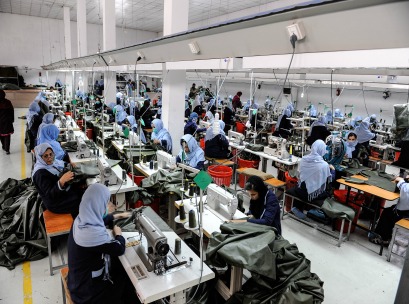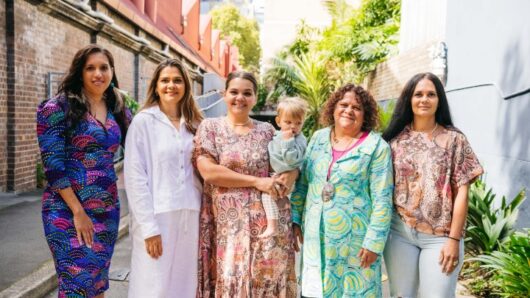 Not-for-profit organisation Oxfam Australia has hit out at retailers’ back to school campaigns, pinpointing leading brands turning over billions of dollars each year, while the women working making the clothes are paid poverty wages and struggling to give their children the basics.
Not-for-profit organisation Oxfam Australia has hit out at retailers’ back to school campaigns, pinpointing leading brands turning over billions of dollars each year, while the women working making the clothes are paid poverty wages and struggling to give their children the basics.
Oxfam Australia labour rights manager Joy Kyriacou said Kmart, Target, Big W and Best & Less – which were all promoting their back-to-school clothing – had a combined annual revenue of more than $13 billion.
“The women in Asia making clothes for these household name Australian brands are trapped in poverty by pittance wages – often left with no other choice but to live in slums, in some cases separated from their children – and struggling to provide the essentials for their families,” Kyriacou said.
Kyriacou pointed to the company’s report from late last year, What She Makes, which showed that on average, four per cent of the price of a piece of clothing sold in Australia goes towards workers’ wages in garment factories across Asia.
The research, conducted by Deloitte Access Economics, showed that in Bangladesh – where wages are extremely low – an average of just two per cent of the price of an item of clothing sold in Australia goes to factory workers’ wages.
“This means that for a $5 school polo top made in Bangladesh, an average of just 10 cents is paid to the factory workers who made it,” Kyriacou said.
“But the research also estimated that if the price of clothing was increased by just one per cent – just five cents for a $5 school shirt – brands could afford to pay a living wage. Oxfam believes with the profits being made by factory owners, wholesalers and retailers in the fashion industry, the cost of paying workers a living wage can realistically be absorbed in fashion supply chains.”
As part of its research, Oxfam Australia spoke to women working in factories in Bangladesh, who told stories of being forced to cut short their education and start work in the garment sector.
Kyriacou said some brands, including Kmart, Target and Big W, had come good on revealing where their clothes were made, calling this “a positive step”.
Access exclusive analysis, locked news and reports with Inside Retail Weekly. Subscribe today and get our premium print publication delivered to your door every week.





